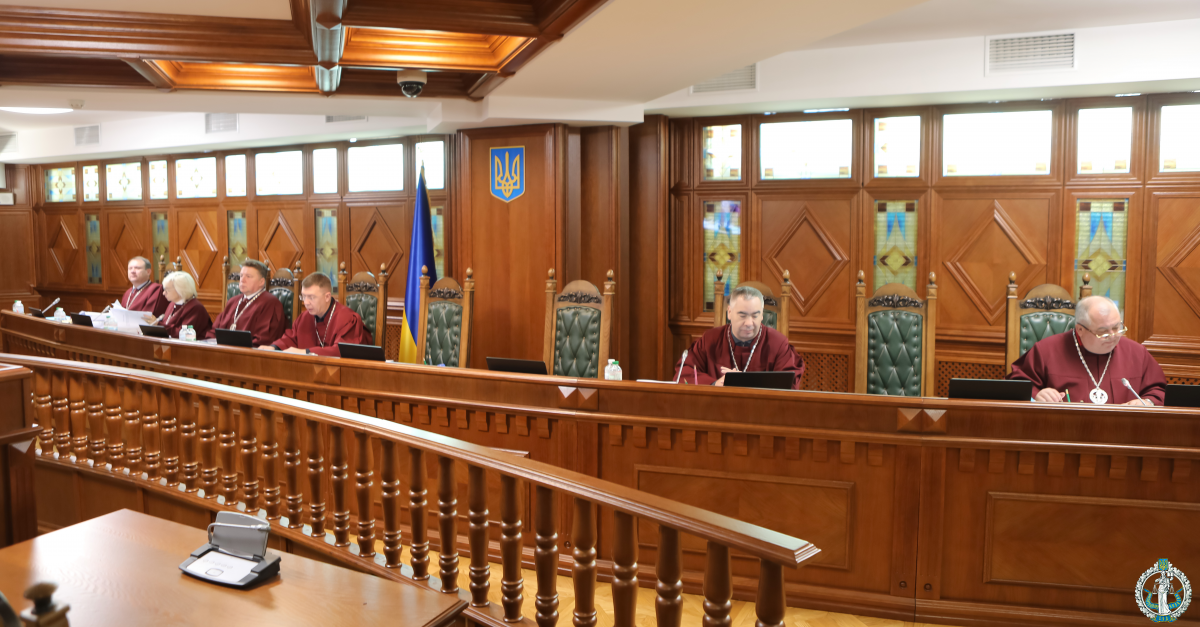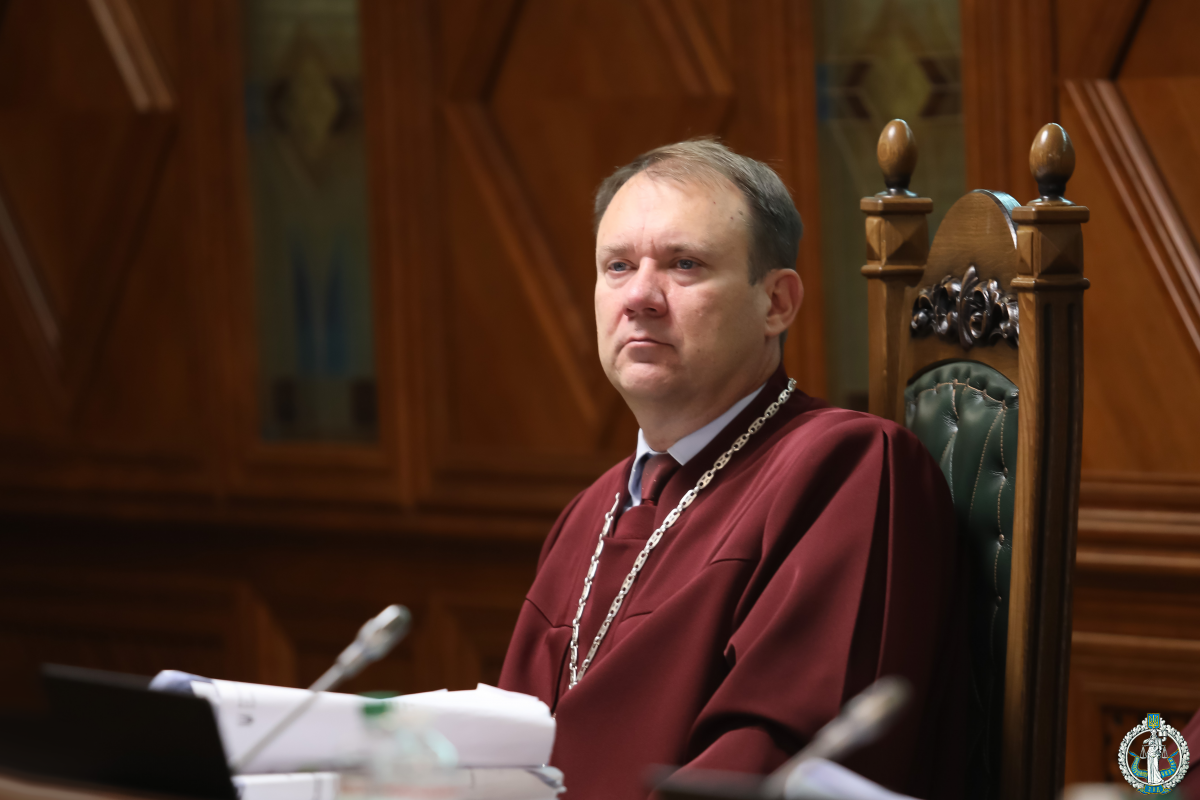On Wednesday, 23 October 2024, the Second Senate, at the public part of the plenary session, deliberated the case upon constitutional complaints of Ihor Sarnavskyi and Svitlana Falendysh regarding the compliance of paragraph 3 of Section II “Final and Transitional Provisions” of the Law of Ukraine “On Amendments to Certain Legislative Acts of Ukraine” No. 1774-VIII dated 6 December 2016 (hereinafter, the “Law”) with the Constitution of Ukraine.
The judge-rapporteur in this case, Oleg Pervomayskyi, noted that the constitutional proceedings had been consolidated into one proceeding due to the same subject matter.
The complainants applied to the Constitutional Court of Ukraine with petitions to verify the compliance of paragraph 3 of Section II “Final and Transitional Provisions” of the Law with Articles 1, 3, 6.2, 8.2, 16, 19.2, 21, 22, 24.1, 24.2, 41.1, 41.4, 46.1, 46.3, 50.1 of the Constitution of Ukraine.
Paragraph 3 of Section II “Final and Transitional Provisions” of the Law states that “the minimum wage after the entry into force of this Law shall not be used as a calculation value for determining official salaries and wages of employees and other payments, except for the calculation of the annual amount of funding for the statutory activities of political parties.
Until amendments are introduced to the laws of Ukraine regarding the non-application of the minimum wage as a calculation value, it shall be applied in the amount of the subsistence minimum for able-bodied persons established as of 1 January of the calendar year, starting from 1 January 2017.”
According to the complainants, the application of paragraph 3 of Section II “Final and Transitional Provisions” of the Law actually reduced the amount of the pension supplement compared to the payments previously established by Article 39 of the Law of Ukraine “On the Status and Social Protection of Citizens Affected by the Chornobyl Disaster” No. 796-XII dated 28 February 1991, which is a violation of property rights. The complainants also point out that the challenged provisions of the Law violate the principle of legal certainty as a component of the rule of law, and equality of rights, and are therefore discriminatory.
The judge also informed that there are a number of cases pending before the Court relating to the same issue.
In this case, the Court proceeded to the in-camera part of the plenary session.
The plenary session is available on the official website of the Court in the section “Archive of video broadcasts of the proceedings”.



